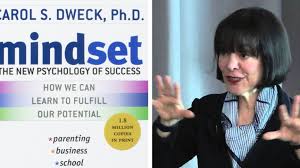27.8.20
Six questions that predict success
Carol Dweck, a Stanford psychologist famous for her research on growth mindset, is coauthor of a new study.
To test the theory, the researchers asked student participants six questions and asked them to rate themselves on a 1 (never) to 5 (always) scale.
- When you are stuck on something, how often do you ask yourself, "What are things I can do to help myself?"
- Whenever you feel like you are not making progress, how often do you ask yourself, "Is there a better way of doing this?"
- Whenever you feel frustrated with something, how often do you ask yourself, "How can I do this better?"
- In moments when you feel challenged, how often do you ask yourself, "What are things I can do to make myself better at this?"
- When you are struggling with something, how often do you ask yourself, "What can I do to help myself?"
- Whenever something feels difficult, how often do you ask yourself, "What can I do to get better at this?"
What happened? Higher scores predicted higher grades.
And in subsequent studies, higher scores predicted greater success in a professional challenge and in a health and fitness goal.
21.8.20
Five stages of accepting constructive mathematics
From a psychological point of view, learning constructive mathematics is agonizing, for it requires one to first unlearn certain deeply ingrained intuitions and habits acquired during classical mathematical training. In her book On Death and Dying psychologist Elisabeth Kubler-Ross identified five stages through which people reach acceptance of life’s traumatizing events: denial, anger, bargaining, depression, and acceptance. We shall follow her path.
Five stages of accepting constructive mathematics is a nifty introduction to constructive mathematics by Andrej Bauer. Mentioned by Martin Escardo on the Agda mailing list.
Labels: Agda, Logic, Mathematics
13.8.20
Positive Obsession and Furor Scribendi
I've just completed reading a trio of books by Octavia Butler: The Parable of the Sower, The Parable of the Talents, and Bloodchild and Other Stories. The latter contains two essays, Positive Obsession and Furor Scribendi, which I heartily recommend. Replace writer by researcher and everything remains true.
Persistence is essential to any writer--the persistence to finish your work, to keep writing in spite of rejection, to keep reading, studying, submitting work for sale. But stubbornness, the refusal to change unproductive behavior or to revise unsalable work can be lethal to your writing hopes.Octavia Butler, "Furor Scribendi"
Labels: Science Fiction, Writing
7.8.20
Don't Stop ICFP
The ICFP music video is out! Thank you to Youyou Cong and Jose Calderon for putting this together. They've done the community a great service.
Labels: Functional Programming, Haskell, Programming Languages


